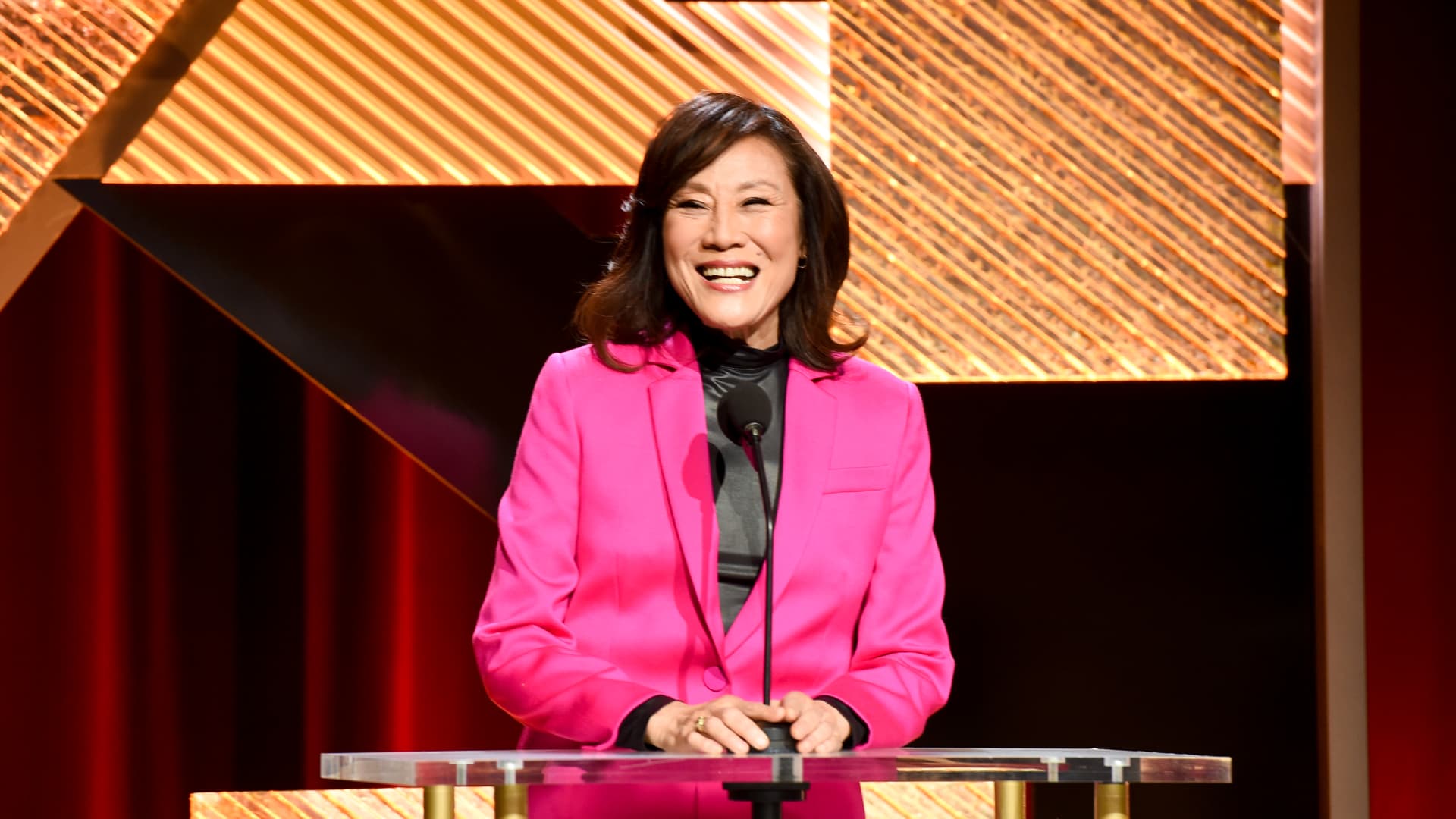Janet Yang is one of the most powerful people in Hollywood — but for a long time, she thought a career in entertainment was impossible.
Growing up on Long Island in the 1960s, Yang, who is Chinese American, never saw people that looked like her on TV or in the pop culture magazines she’d thumb through on her bedroom floor.
“I think the first Asian person I saw on TV was Bruce Lee, and that’s it,” Yang, 66, recalls.
Now, she leads the world’s most famous club for filmmakers and artists. In August, Yang began her first term as president of the Academy of Motion Picture Arts and Sciences, becoming the first Asian person, and fourth woman, to hold the position.
The almost 100-year-old organization is responsible for deciding the winners of the Oscars each year — its 10,000-plus members vote on the nominees — and outside of awards season, the academy preserves and promotes movies through its museum, library and other initiatives.
Yang is an Emmy and Golden Globe-winning producer whose film credits include “The Joy Luck Club,” “High Crimes” and the Oscar-nominated animated film “Over the Moon.”
But producing wasn’t a job she was even remotely interested in until her 20s after she graduated college and moved to Beijing to work as an editor for a publishing house.
She became enamored with China’s blossoming film scene while living there and seeing people who looked like her act as more than martial artists on the silver screen, from scorned lovers to heroes in dystopic landscapes.
“It finally dawned on me that Asian people can be talented actors, writers and directors, too,” Yang says. “It had never occurred to me … I needed that evidence.”
Learning under Steven Spielberg
When Yang returned to the U.S. in 1982, she got a job in San Francisco as a film distributor responsible for choosing Chinese movies to screen at festivals and theaters across North America.
In 1985, she was hired by several studios, including Paramount and Universal Studios, to sell American films to theaters in China. On the Universal Studios lot, Yang met two people that would change the course of her career: Steven Spielberg and Kathleen Kennedy.
Kennedy, one of the co-founders of Spielberg’s production company, Amblin Entertainment, invited Yang to assist Spielberg with a film he was shooting in Shanghai: “Empire of the Sun.”
Yang almost turned down the opportunity — she was afraid her boss at the time, Skip Paul, wouldn’t want her gone for several months to shoot in China — but he was the one who ultimately convinced her to go.
“He said, ‘Go, Janet, soar,'” Yang recalls. “I was leaving his team for another opportunity that didn’t benefit him at all, and he was still supportive and excited for me … I’ll never forget that.”
While shadowing Spielberg on the shoot, Yang decided she wanted to produce her own films. She and her colleague Oliver Stone, the Oscar-winning writer and director behind “Platoon,” “Natural Born Killers” and other famous titles, formed their own production company in 1989, Ixtlan Corporation, where Yang made “The Joy Luck Club” and “The People vs. Larry Flynt,” among other films.
Joining Hollywood’s most elite club
Yang joined the academy in 2002 but wasn’t an active member until 2016 when she volunteered to help with the organization’s initiative to recruit more diverse members.
She continued to take on more responsibilities, becoming a governor on the board in 2019. Last summer, when the academy announced they were looking for a new president, Yang nominated herself for the job.
In August, Yang was elected by the academy’s board of governors — a group that includes Rita Wilson and Ava DuVernay — and will serve in the position until August 2023, unless she is elected for a second term.
“The industry is going through a lot of changes, it’s a really pivotal moment where we can come together and face these challenges together and create a sense of belonging,” Yang says. “I became more and more magnetized to doing that important work.”
One of those challenges is making Hollywood — and by extension, the Oscars — a more welcoming, equitable place for women, people of color and other marginalized groups.
Critics have pointed out the lack of diversity among the nominees for years, even inspiring a trending hashtag, #OscarsSoWhite, first tweeted by activist and writer April Reign, in 2015.
“There’s still work to be done every day,” Yang says. “It’s not all roses, but there’s been a lot of progress.”
Outside of the academy, Yang has earned a reputation as a “godmother” to other Asian Americans working in Hollywood and is actively involved in several organizations working to amplify AAPI voices in entertainment.
“I’ve felt like an outsider many times throughout my life,” she says. “It’s wonderful to have a sense of belonging, and terrible not to … If I can help open the door for other women and people of color, I’m thrilled.”
Preparing for the Oscars
Yang won’t reveal much about what to expect at this year’s Oscars (or who she’s rooting for) except that viewers can expect to see more of the behind-the-scenes work that goes into making some of the films nominated for this year’s awards.
“We want people not only to see the hard work behind the camera that goes into making these movies and experience but also the joy of creating something,” she says.
Ahead of Hollywood’s biggest night, Yang is prioritizing self-care in her routine, which for her, looks like getting eight hours of sleep each night, hanging out with her cat, and cooking dinner at home as often as she can.
“Even washing dishes has become therapeutic at this point, when things get really busy,” she jokes. “Anything that just forces me to slow down and be present.”
Check out:
Sign up now: Get smarter about your money and career with our weekly newsletter


